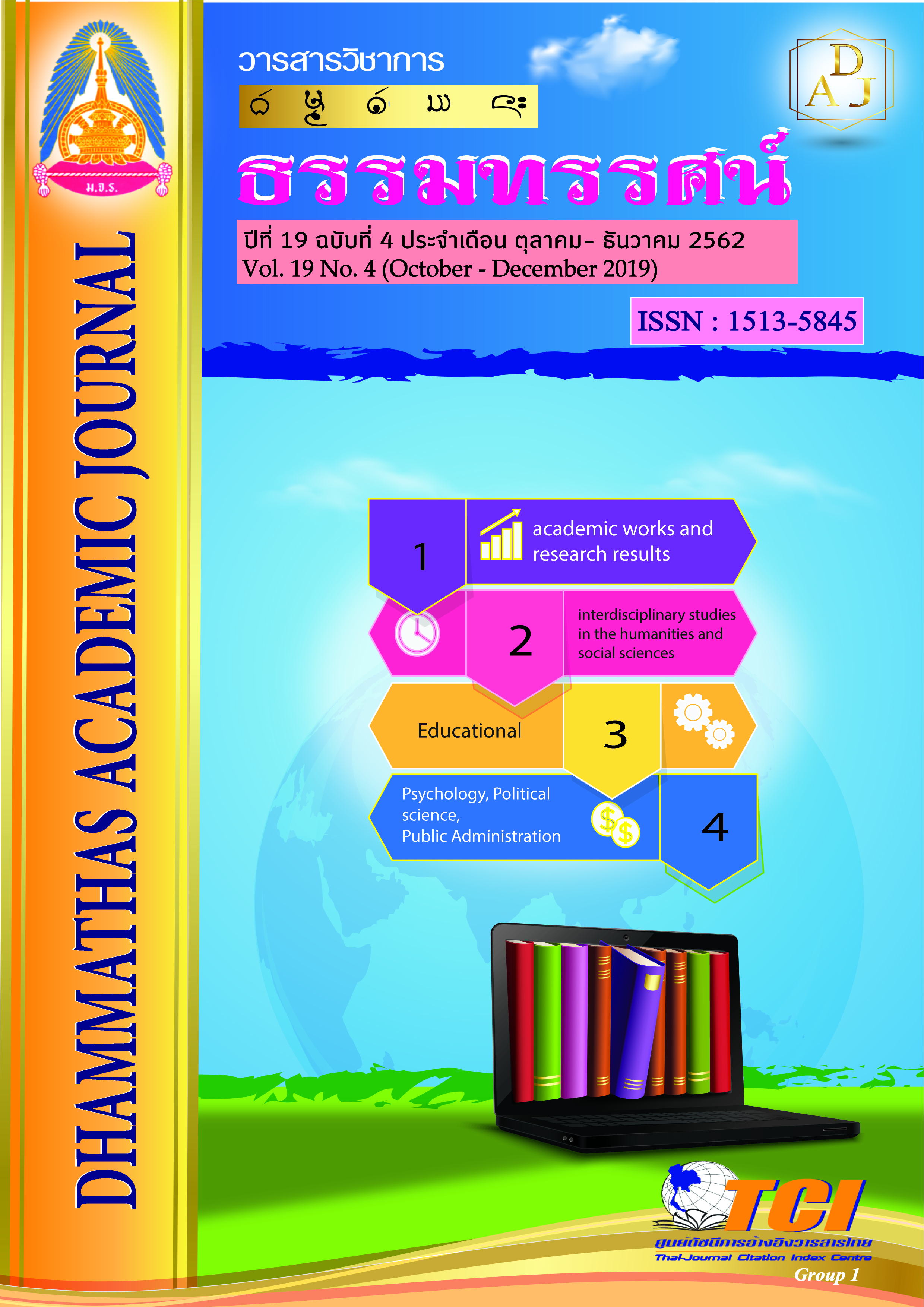Outsourcing: A case of Hospitals under Ministry of Defence
Main Article Content
Abstract
The purposes of this research were: to study the process of outsourcing, to study the conditions that affect the outsourcing process and to study guidelines for analyzing the strengths and weaknesses of outsourcing in hospitals under the Ministry of Defense. Which is a qualitative research consisting of 3 hospitals, namely Bhumibol Adulyadej Hospital, Phramongkutklao Hospital and Somdet Phra Pinklao Hospital. The group of key informants consists of senior managers, outsourcing service providers, nurses and related persons, totaling 33 persons by purposive selecting. The tools used to collect data were structured interview forms. Data collecting by studying documents, In-depth interviews and group discussions. Data analyzing by inductive analysis to interpret and create conclusions.The purposes of this research were: to study the process of outsourcing, to study the conditions that affect the outsourcing process and to study guidelines for analyzing the strengths and weaknesses of outsourcing in hospitals under the Ministry of Defense. Which is a qualitative research consisting of 3 hospitals, namely Bhumibol Adulyadej Hospital, Phramongkutklao Hospital and Somdet Phra Pinklao Hospital. The group of key informants consists of senior managers, outsourcing service providers, nurses and related persons, totaling 33 persons by purposive selecting. The tools used to collect data were structured interview forms. Data collecting by studying documents, In-depth interviews and group discussions. Data analyzing by inductive analysis to interpret and create conclusions. The research found that:
1. The process of outsourcing was a diagnostic service by employing Magnetic Resonance Imaging (MRI) services consisting of 5 steps: 1) Analysis of the main activities of the organization, by defining the scope of the organization, analysis of organizational potential treatment services and compliance with government policies; 2) Investment analysis and evaluation steps, by purchase of Magnetic Resonance Imaging (MRI). It was found that the investment requires a high budget, must use specialized personnel with high compensation and technology had to constantly changing, therefore not worth buying tools; 3) Recruitment of outsourcing process, by guidelines for selecting companies, with modern technology tools, hospital return will be given, professionalism and reliable; 4) Negotiation and contract procedures, by setting up a committee to select appropriate agencies in accordance with the Procurement Act 2017 and the contract period of year by year; 5) The process of hiring according to the strategic plan and evaluating of outsourcing performance every 3-6 months in 1 year.
2. Conditions affecting of hospitals outsourcing process under the Ministry of Defense found that: 1) Opportunity conditions include (1) Success in providing services, (2) Worthiness conditions; including reducing the cost of employment and personnel management, reduce personnel development costs, (3) Increasing the value of services conditions; by able to provide emergency services for 24 hours without interruption, (4) Provide services conditions; with modern medical equipment and having good maintenance. 2) Restrictive conditions include (1) Organization policy and a clear plan. (2) Communication and understanding agreements; that responds to the job characteristics and hospital needs. (3) Purchasing and budgeting regulations; with multi-steps management and there are many levels of command. (4) The standard of service provision; by selection of companies that meet standards in order to provide efficient services.
3. Guidelines for analyzing the strengths and weaknesses of hospitals outsourcing process under the Ministry of Defense found that: 1) Strengths include (1) Cost reduction; reduce cost of employment, personnel management, purchasing tools and personnel development with specialized expertise. (2) Increase service efficiency; with modern medical equipment and always have good maintenance. (3) Create service value; able to provide adequate, fast and timely services. Promote the image of the work of the organization better. (4) Increase management efficiency; Reducing the process of repairing medical equipments. 2) Weaknesses include (1) Quality control of personnel; provided by external contractors. (2) The risk of relying on others in providing services; difficult change of service provider due to complicated and time-consuming procedures.(3) Complicated procurement regulations; in according to the bureaucracy and requires a long time for procurement.

